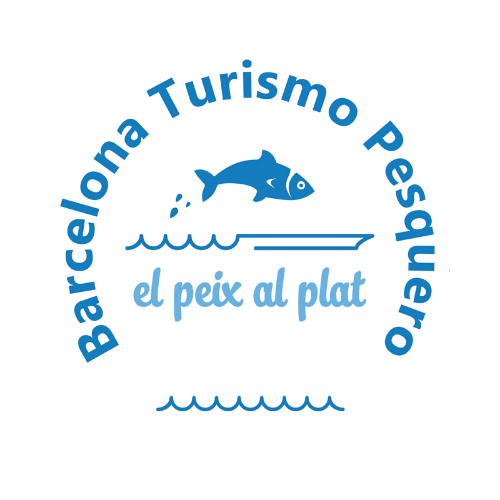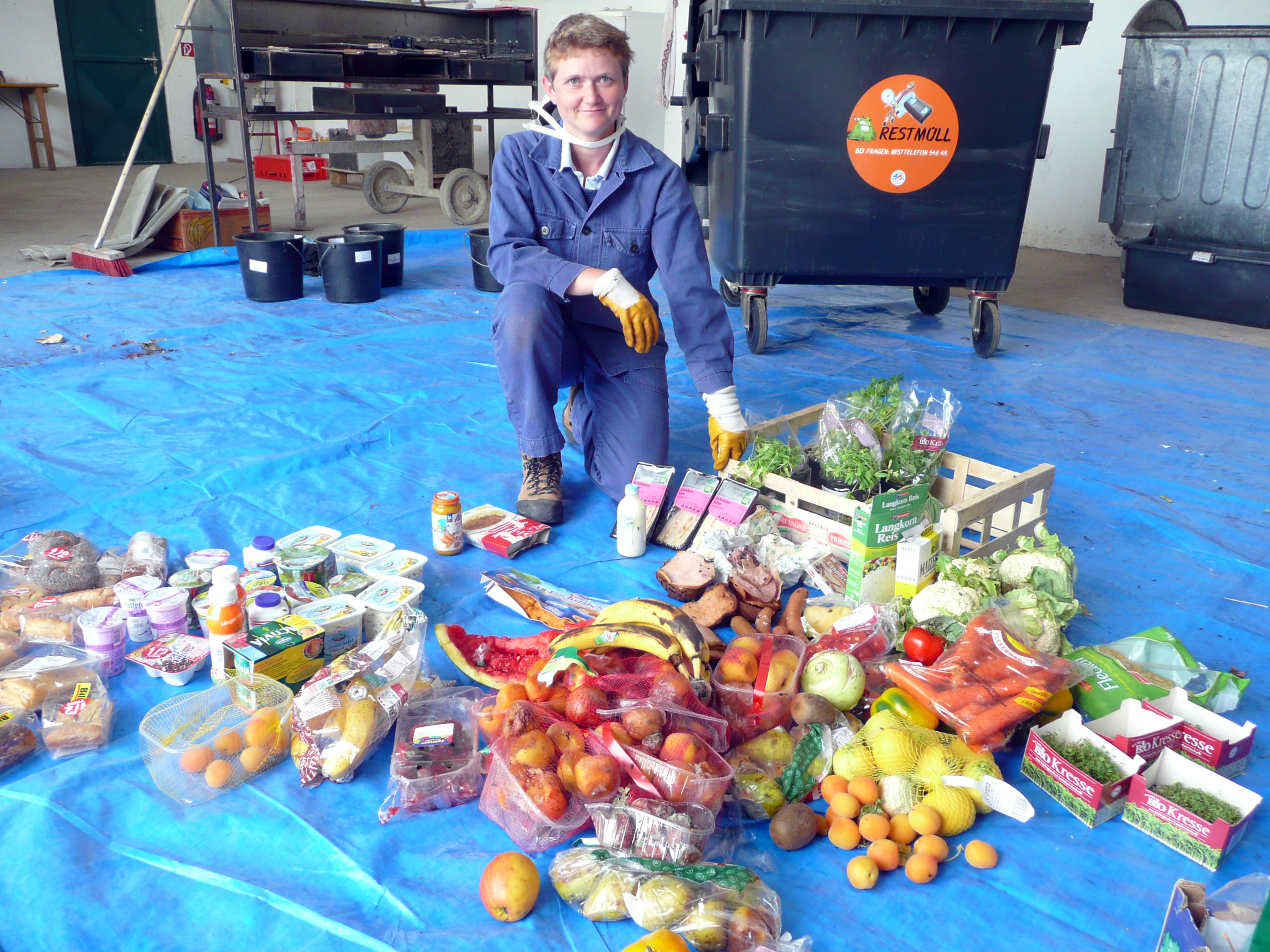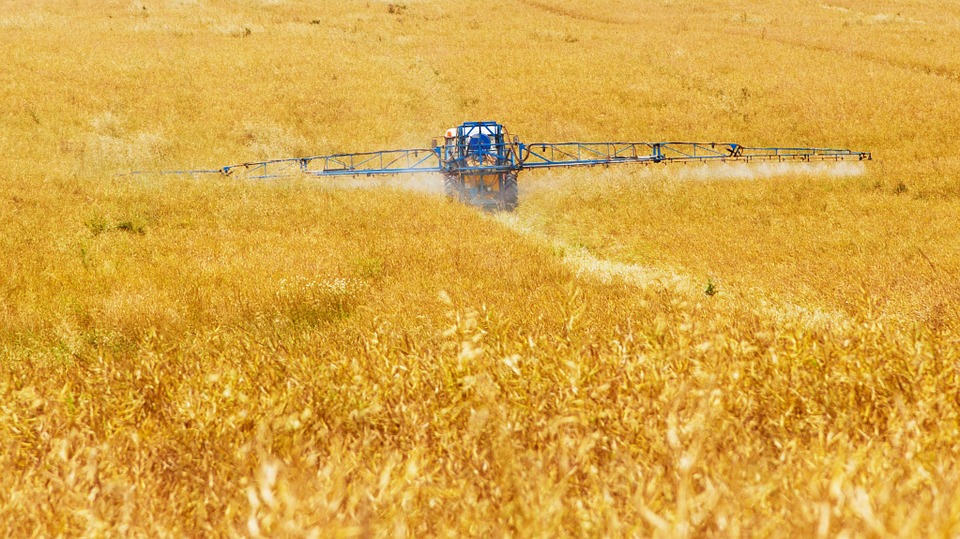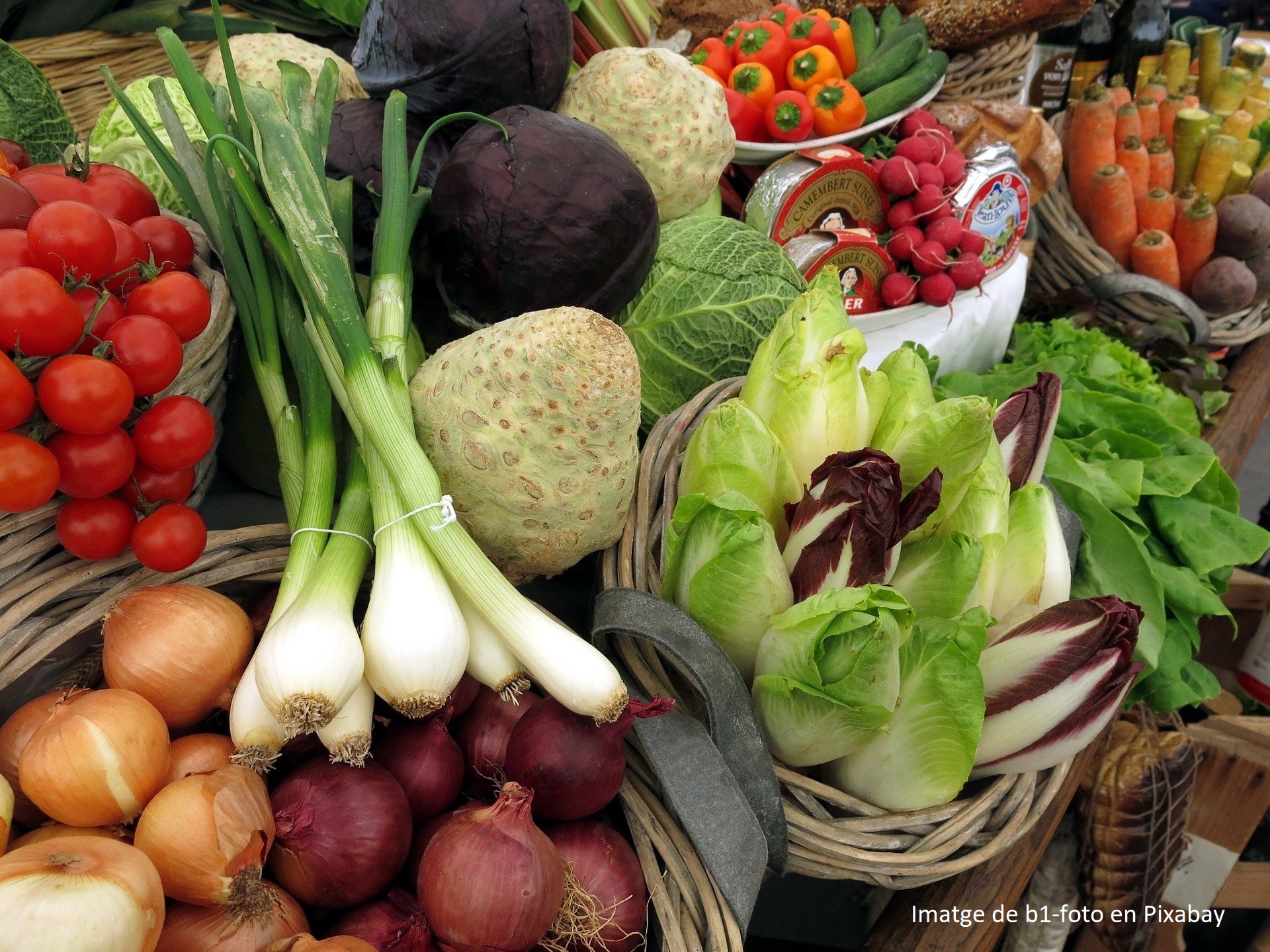In this programme you will find practical ways for moving towards a diet that includes habits which improve quality of life for ourselves and the people around us.
You learn how this affects our decisions, how we choose what we buy and where we buy it, all in a cheerful, fun and creative way.
We discover how to improve our surroundings and our inner selves, in order to feel full of life.
Our food choices have an impact on the environment; we review various diets (carnivorous, omnivorous and vegetarian) and finally focus on the plant-based diet.
Sustainable Food Citizen Week
Video resum de la Setmana Ciutadana de l'Alimentació Sostenible 2021
The activities of the Sustainable Food Citizen Week
Sustainable Food Citizen Week provides an opportunity to understand the relationship between food habits and cross-cutting aspects such as the climate emergency, local economic development, culture, politics, social rights and health. A week dedicated to citizens, in which you will achieve knowledge, reflection and debate about the main issues of the following activities.
Gastronomic heritage
- October 18th - 18.00 HBetevé broadcastingTelevised cooking workshop
- October 19th - 18.00 HBetevé broadcastingTelevised cooking workshop
How can you adapt sustainable food to healthy living?
Batch cooking consists in cooking for the whole family and investing a little time so you can make nutritious everyday meals, at home and for your lunch box.
BREAKFAST: habits as simple as a good glass of water, with sea water and lemon. Breakfasts such as shakes or smoothies, which you can warm up in winter. You will discover recipes such as rice pudding and pear, quality-bread sandwiches and an omelette made from organic eggs.
LUNCH: important notions on how to structure a dish with different groups of foods. A dish is not the same for a teenager as a middle-aged person. You can cook the same for all the family but put in what each person needs. You should always add vegetables in season, wholemeal carbohydrates, some raw vegetables, sprouted and fermented foods, etc. You will discover recipes such as baked pumpkin with curry; lentils cooked with adobo, sprouted ... and seeds; chickpeas with prawns; wholemeal rice with mushrooms; and lettuce head salad with carrot, olives and chopped chives. Wholemeal pasta with courgettes, mushrooms, squid with carrot and beetroot.
EVENING MEAL: an evening meal or supper should be light and eaten as early as possible. You will discover recipes such as pumpkin, sweet potato and oatmeal soup; vegetable pudding with carrot and broccoli; fish soup with noodles, and grilled fish in a sauce.
- October 20th - 18.00 HBetevé broadcastingTelevised cooking workshop
Getting children away from processed food as much as possible.
At home, we can organise menus very quickly, using fresh and seasonal local produce.
Not forgetting breakfasts and snacks and their natural desire for sweet food; we offer some great solutions.
Waste vs Good use
- October 16th - 20.00 HPlaça ReialTalk
Presentation of Repensa el que menges (Rethink What You Eat), a guide for the sustainability of formal and non-formal educational practices in the promotion of the right to food through the service learning methodology.
- October 16th - 20.00 HTeatre del CCCB, Jardí dels Tarongers, Plaça del Rei, Parc de la BarcelonetaShow
A unique musical group, the Vegetable Orchestra, plays instruments made from fresh vegetables. The use of various vegetable instruments makes for a unique musical and aesthetic universe. The Vegetable Orchestra covers the most diverse musical styles, combining genres from electronic music to jazz. The newly created instruments determine the resulting sound. A Vegetable Orchestra concert appeals to all five senses.
- October 20th - 22.00 H (variable according to betevé programming)Betevé broadcastingDocumentary film season
Amazing, but true: from the farm to the dining table, more than half of the food is thrown away and much of that food never reaches consumers. Why are these increasingly large amounts of food being destroyed? In this documentary we will look for explanations for this waste.
This activity is part of the Betevé documentary film series that includes the films Fermentación espontánea, Taste the waste, Food for change and Il mare piange.
Urban rurality and biodiversity
- October 21st - 17.30 HBiblioteca Joan MiróVisit / Tour
A walk for discovering the many wild plants we have close to home that we were unfamiliar with and the varied possible uses of which we could never have imagined. We’ll learn how to identify them, we’ll smell and taste them and discover the uses each of the species has inside and outside the kitchen.
- October 22nd - 17.30 HPlaça Lesseps (sortida metro)Visit / Tour
A walk for discovering the many wild plants we have close to home that we were unfamiliar with and the varied possible uses of which we could never have imagined. We’ll learn how to identify them, we’ll smell and taste them and discover the uses each of the species has inside and outside the kitchen.
- October 23th - 10.00 HEstació Carretera de les Aigües- Funicular de VallvidreraVisit / Tour
A walk for discovering the many wild plants we have close to home that we were unfamiliar with and the varied possible uses of which we could never have imagined. We’ll learn how to identify them, we’ll smell and taste them and discover the uses each of the species has inside and outside the kitchen.
Ecological footprint
- October 17th - 13.00 HPlaça del ReiTalk
Talk looking at all the most common stages of the life cycle of our food. From the farm to the table, we’ll be pondering the carbon footprint of agriculture, packaging, logistics, cooking, organic waste etc. The overall goal is to provide information for deciding on food which has a lower impact in terms of greenhouse gas emissions. The session will also stress the contradictions in environmental communication for consumers.
- 17th October 13.30 hPlaça del ReiTalk
What are the impacts of our food system on our planet? How does this affect the peasantry, our territory and the communities of the global south? What role does the food industry play? What can we do as consumers? What is the role and situation of women, who have traditionally fed the world? On all these issues, we offer you an exciting dialogue with Vandana Shiva (Indian climate activist, graduate in physics, philosopher, ecologist, feminist and author of more than twenty books and 300 articles in the world's most prestigious scientific journals) and Esther Vivas ( activist, researcher in social movements and agricultural and food policies, degree in journalism and diploma in higher studies in sociology from the Autonomous University of Barcelona).
- October 17th - 17.30 HPlaça del ReiRound table
The current industrial agri-food system generates a series of environmental conflicts that are manifested through struggles and mobilisations in response to the impact this system has on the environment and society. These conflicts are mainly associated with the defence of environmental conditions or equal access and distribution of natural resources, often occurring in production and transit areas, and ultimately affecting the regions and communities where they happen. They often reveal conflicting interests, different development paradigms, and aspects related to involvement in decision-making.
The aim of this roundtable is to address some of the main current socio-environmental conflicts in Catalonia, arising from the food system, and to understand the causes and impacts both in Catalonia and the Global South, in order to make them visible, encourage dialogue and provide possible solutions or alternatives.
Proximity
- October 17th - 20.00 HPlaça ReialShow
At the improshow we play with knowledge about food, sustainability and the climate emergency. We’ll be improvising everyday situations connected with sustainable food and local organisations, through humour and based on audience suggestions.
An innovative experience in which the audience will become the authors of stories that are surprising, exciting and fun. - October 19 at 7:30 h / October 20, 21 and 22 at 16:00 hFishermen's Guild of BarcelonaVisit / Tour
The fish market is a specific part of the Barcelona fishing port where the fish that have been caught during the day are auctioned off for sale. On the occasion of Sustainable Food Week, the market opens its doors so that we can learn about the fleet of the Fishermen’s Guild of la Barceloneta, the various fishing methods used and the environmental impact they have. During the visit, we will talk about the types of fishing and the methods used to catch different species, while learning what a day at the market is like, what species are sold at auction, and what measures are being taken to address the new challenges that are putting marine ecosystems at risk.

- Remnants and futures of agriculture in Barcelona: La Ponderosa, El Rec Comtal and La Casa de l’AiguaOctober 23th from 10.00 to 13.00 HCasa de l'Aigua de la Trinitat NovaVisit / Tour
Are there any allotment estates left in Barcelona? How does Barcelona feed itself? How vulnerable are we, without having land available for producing the food we eat? Discover La Ponderosa, the city’s last allotment estate, the Rec Comtal and water heritage, and fall in love with local produce and sustainable food.
More week
- October 15th from 16.00 to 17.30 HEspai Consum ResponsableTalk, Exhibition
An activity aimed at raising public awareness of the resources used in food production, in order to show the importance of avoiding food waste due to the losses it generates.
- October 15th from 17.00 to 19.00 HCETT-UBCulinary experience
Presentation of the #CookOnceEatTwice campaign, with a view to sharing recipes and tips for getting the most out of your ingredients as a way of contributing to sustainable eating at home. The event will include a showcooking demonstration by the CETT-UB, where some of the recipes included in the campaign will be prepared.
La Fundació Espigoladors will be taking take part, with a question and answer game on making the most of food. - October 15th from 18.00 to 19.00 HVideoconferenceOnline
In this 60-minute talk we explain the pros and cons of using packaging for the retail sale of fruit and veg, and you’ll see that, in some cases,not only does it not represent an improvement in terms of food safety, but quite the reverse.























